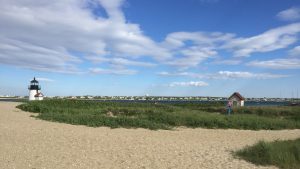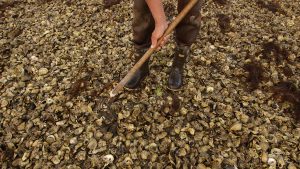Search results for: sites%20that%20offer%20cheap%20airline%20tickets%20phone%20number%201-800-299-7264
2004-2006 Projects
Environmental Contaminants and Fish Reproduction Not if, but how? That is the question WHOI postdoctoral investigator Joanna Wilson is asking about how certain environmental contaminants effect marine and freshwater fish reproduction. By applying new research tools—advanced mass spectrometry and proteomics—Wilson and her former graduate advisor, John Stegeman, a WHOI senior scientist, will measure proteins associated…
Read MoreShellfish
Shellfish Research » Identification of the cause of hemic neoplasia in Mercenaria mercenaria and development of management methods NRAC-USDA Fall 2017 – Fall 2019 » Market Development to Diversify Shellfish Aquaculture Products in Massachusetts NOAA SG Aquaculture Initiative: Addressing Impediments to Aqua. Opportunities Sept. 2017 – Sept. 2019 » Piloting surf clam aquaculture techniques to…
Read MoreMolecular Analysis of a RAPD Marker (B20) Reveals Two Microsatellites and Differential mRNA Expression in Penaeus vannamei
Molecular Analysis of a RAPD Marker (B20) Reveals Two Microsatellites and Differential mRNA Expression in Penaeus vannamei Garcia, D.K., A.K. Dhar, and A. Alcivar-Warren Molecular Marine Biology and Biotechnology, Vol. 5, No. 1, pp. 71-83, 1996 WHOI-R-96-001
Read MoreCoastal Conference Series Spotlights Nantucket
More than 100 people attended the second biennial Nantucket Coastal Conference at the Atheneum on June 26, 2019, to hear about the coastal issues that impact Nantucket and the approaches government, industry and non-profit organizations take in addressing them. Fifth in a series of conferences that started in 2013 and alternate between Martha’s Vineyard and Nantucket,…
Read MoreWHOI-R-98-003 Gonzalez-Gil, S. Detection and
WHOI-R-98-003 Gonzalez-Gil, S. Detection and
Read MoreTechnology Enables Better HAB Monitoring and Mapping
Technology Enables Better HAB Monitoring and Mapping The project’s sampling plan for the Nauset area of Cape Cod. Sept. 2018 — Nauset Marsh in Eastham, Mass. on Cape Cod serves as a “natural laboratory” for researchers working to better understand harmful algal blooms (HABs) or red tide. HABs in Nauset are caused by the phytoplankton…
Read MorePerigean Spring Tides — Predicting Potential Disasters: How Tidal Information May Save You From a Coastal Crisis
Perigean Spring Tides — Predicting Potential Disasters: How Tidal Information May Save You From a Coastal Crisis Helpful to educators and students. Giese, G.S. Marine Extension Bulletin, 2 pp., 1998 WHOI-G-98-007
Read More2006-2008 Projects
Seasonal Changes in Groundwater Flow Into the Coastal Ocean Fresh water from water tables under the land flows out into the coastal ocean from beneath the seabed, a flow known as submarine groundwater discharge (SGD). Researchers have found that such flow can have a very large impact on estuaries. Groundwater carries land-generated nitrogen compounds, plus…
Read MoreEnjoying Oysters Safely in Massachusetts
Each year, millions of fresh raw oysters are consumed in Massachusetts, most of them in the warm summer months. During that time, aquaculturists in the Commonwealth take extra precautions to safeguard their harvests from the heat, include icing oysters at the time of harvest – a step that can double or triple the weight of…
Read MoreOctober 2020 Newsletter
Coastal Impacts Woods Hole Sea Grant Newsletter OCTOBER 2020 CONTENTS Letter from the Director Woods Hole Funded Project Impacts Future of Iconic Industry in Southeastern Massachusetts WHSG Hosts Virtual “Teacher-in-Residence” Staff Assists on Crucial Model Floodplain Bylaw Update Getting To Know – Knauss Fellow Sean McNally Needs Assessment Survey Helps Program with Strategic Planning…
Read More

